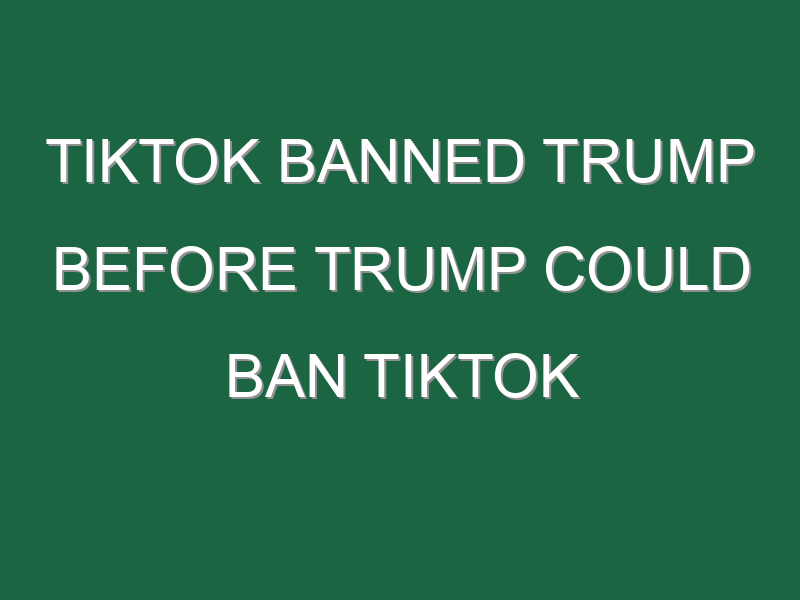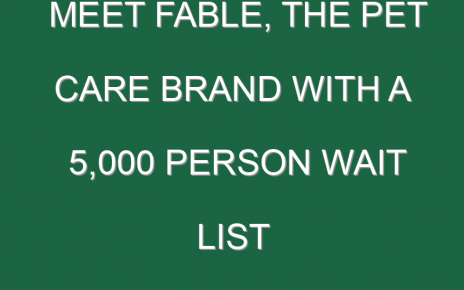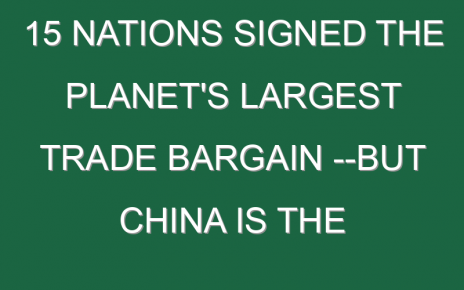Our mission to make business better is fueled by readers like you. To enjoy unlimited access to our journalism, subscribe today.
For months, U.S. President Donald Trump has tried to ban TikTok, the wildly popular short-video app owned by Chinese technology company ByteDance, on the grounds that the app’s Chinese ownership poses a national security threat.
U.S. officials claim that TikTok allows the Chinese government to access user data, censors political topics, and could be used to spread misinformation.
“As far as TikTok is concerned, we’re banning them from the United States,” Trump said in August. The same month, he said TikTok “can’t be controlled, for security reasons, by China. Too big. Too invasive.”
But TikTok, which is still operating in the U.S., turned the tables this weekend when it confirmed it was removing some videos of Trump speaking because they violate the company’s misinformation policy.
Trump doesn’t have a personal TikTok account, but TikTok’s restrictions on the president fall in line with actions by Twitter, Facebook, Instagram, and Snapchat, all of which suspended Trump’s accounts on their platforms following last week’s Capitol Hill attack, which Trump incited.
Apart from removing videos of the president’s speeches, TikTok blocked certain hashtags related to the Capitol attack, such as #stopthesteal, a campaign to overturn the results of the U.S. presidential election over false claims that Trump won the contest—claims Trump has repeatedly asserted.
“Hateful behavior and violence have no place on TikTok. Content or accounts that seek to incite, glorify, or promote violence violate our Community Guidelines and will be removed,” TikTok said in a statement.
Subscribe to Eastworld for weekly insight on what’s dominating business in Asia, delivered free to your inbox.
TikTok is still alive in the U.S. despite the Trump administration’s months-long effort to ban the platform or orchestrate the sale of its U.S. operations from its Chinese parent. The push started in August, when Trump signed an executive order restricting TikTok’s U.S. operations over national security concerns. (TikTok has repeatedly denied U.S. government claims that it is a security risk in the U.S., where it has 100 million monthly active users.)
TikTok and TikTok content creators filed various lawsuits against Trump’s executive order. In October and December, two federal judges ruled in separate cases against the administration’s ban, effectively blocking the government from carrying it out. On Dec. 28, the Trump administration filed an appeal against the December injunction.
In the meantime, ByteDance responded to Trump’s order by starting to search for an American company that could buy TikTok U.S. and avert a ban on the app’s U.S. operations. In August, amid reports that Microsoft might purchase TikTok, Trump called TikTok “a hot brand” and demanded a cut of any TikTok sale for the U.S. Treasury. But Oracle and Walmart beat out Microsoft to become the frontrunners to buy TikTok. (Trump said that deal had his “blessing.”)
The U.S. Commerce Department has repeatedly extended a deadline it set for ByteDance to either complete the sale of TikTok’s U.S. business or face a U.S. ban. On Dec. 4, the most recent deadline passed without fanfare; the TikTok sale talks are still on-going, the Commerce Department set no new deadline, and the app is still functioning in the U.S. perfectly well.
For now, TikTok’s U.S. users continue to enjoy the platform, but those who want to watch selected Trump speeches will have to look elsewhere.
More must-read stories from Fortune:
- Democrats plan to use Senate win to pass $2,000 stimulus checks
- Betting odds heavily favored Georgia’s GOP candidates, then suddenly collapsed. What went wrong?
- COVID vaccine recipients may still be infectious. When will we know for sure?
- The biggest conspiracy theories of 2020 (and why they won’t die)
- A brief history of Bitcoin bubbles





